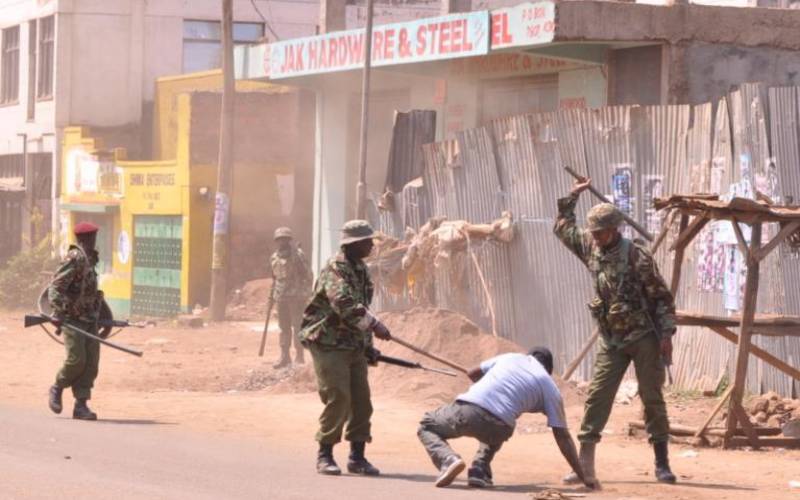×
The Standard e-Paper
Kenya’s Boldest Voice

File photo of GSU Officers beat up one of the protesting youths at Kondele in Kisumu. [Collins Oduor, Standard]
At least one person is killed in cold blood every two days in Nairobi, a rights lobby has revealed in a damning report.







